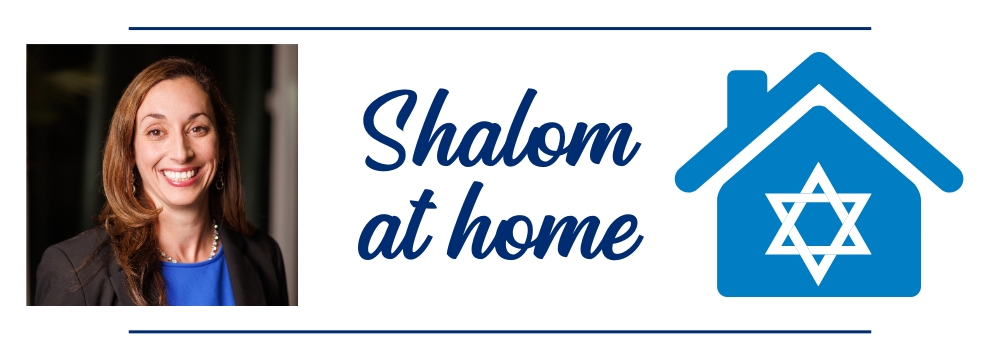There is a story in Judaism that I think about a lot. The story of Abraham, who, as the tale goes, sees three strangers walking in the desert. Rather than turning away from what could realistically have been a dangerous situation, Abraham runs to these men.
The text is very clear here: Abraham doesn’t just walk, he runs. A full throttle, open-arms, out-stretched hands kind of run. Abraham beckons them, offering food, comfort and shelter; no second-guessing, no questions asked. The story, of course, goes on to become the underpinnings of the Jewish mitzvah to “welcome guests.”
As a parent, I think about welcoming guests all the time. The weight of it, the expectations of a clean house, a nice meal. How exactly am I supposed to welcome people when there are toys all over the floor? My kitchen is outdated, and there are no plans for renovations. I need a new couch. The thought of planning, prepping and cooking a meal for a group is exhausting just to think about. How can I welcome guests when I barely have the energy for my own brood?
But here comes the ultimate parenting conundrum. The exact time when we feel most overwhelmed is exactly the time when we should be opening our homes to guests. And yet, too often, it is then when it feels most impossible.
Recently, the U.S. Surgeon General Vivek H. Murthy declared the stress and burnout of parenting a national emergency. The year before, in 2023, the U.S. Department of Health and Human Services declared an “epidemic of loneliness and isolation.” The irony is not lost that just three years before, we were all huddled alone in our homes, isolated, fighting a raging COVID pandemic.
However, even before the pandemic, our country had a loneliness problem.
As the director of Sasone, a program that helps support access to Jewish education for students with diverse needs, I think about exclusion and its aftermath often. I get to consider myself one of the hardened warriors who survived “parenting during a pandemic,” isolation to the highest degree. Nonetheless, I still know the right thing to do is gather — no judgments, no expectations.
They say it takes a village to raise a child — yet so often, that village feels far away. Like a distant dream in a distant land, we no longer live in nomadic tribes in the desert. But one thing remains — humans, and I think especially parents, need other humans. It’s in our DNA; we are not supposed to parent alone.
Abraham was on to something when he ran to those strangers that fateful day. He recognized that people didn’t belong out in the desert on their own. He saw them and didn’t wait; he didn’t fear judgement at what his tent might look like or second guess how his food might taste — he just did it. And yes, while Sarah and Abraham were still childless at the time — plot twist — they were rewarded for this act of service with the birth of their only son, Isaac, and with him the dream that the Jewish people might one day become “more numerous than the stars in the night sky.”
So, the next time you are thinking about inviting guests over — as the famous Nike advertisement from my childhood goes — “just do it.” Open your arms, open your hearts — maybe even run? Outdated kitchens, unfolded laundry, toys on the floor be damned. Like Abraham, you too will be rewarded.
Lindsey Lipsky lives in Overland Park, Kansas, with her husband and three children. She works as the director of Sasone. For more information on this work, visit sasone.org.
Like what you just read? Consider supporting The Kansas City Jewish Chronicle, our community's only Jewish news source for over 105 years, by making a donation or starting a subscription today!



